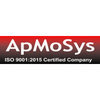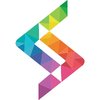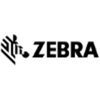
Get AmbitionBox App
Faster and better experience!

i
Big Oh Notation
Filter interviews by
Big Oh Notation Software Engineer Interview Questions and Answers
Big Oh Notation Software Engineer Interview Experiences
1 interview found

(2 Questions)
- Q1. What is the difference between classes and struct
- Ans.
Classes are reference types while structs are value types.
Classes support inheritance while structs do not.
Classes have default access modifier as internal while structs have it as private.
Classes have a destructor while structs do not.
Classes are allocated on heap while structs are allocated on stack.
Classes can be null while structs cannot.
- Q2. Dispatch Queue vs operations
- Ans.
Dispatch Queue is a thread-safe way to execute tasks asynchronously, while Operations are a way to encapsulate tasks.
Dispatch Queue is a high-level API for managing concurrent operations.
Operations are objects that encapsulate a single task or multiple tasks.
Dispatch Queue is simpler to use and recommended for most use cases.
Operations provide more control over task dependencies and cancellation.
Both can be used togeth
Interview Preparation Tips
Skills evaluated in this interview
Top trending discussions






Interview questions from similar companies

Software Developer Interview Questions & Answers
Hummingbird Web Solutionsposted on 12 Sep 2023
I applied via Naukri.com and was interviewed before Sep 2022. There were 3 interview rounds.

(2 Questions)
- Q1. Basic JS questions
- Q2. String Concat through function
Advanced JS, PHP related questions
Interview Preparation Tips

Software Developer Interview Questions & Answers
Hummingbird Web Solutionsposted on 24 Oct 2024
(1 Question)
- Q1. 3 Question was there related to architecture and Computer networks.
(2 Questions)
- Q1. Microservices and Monolith.
- Q2. Leetcode hard Sum.

I applied via Recruitment Consulltant and was interviewed before Apr 2023. There were 3 interview rounds.
(1 Question)
- Q1. General fit to profile filtration
(3 Questions)
- Q1. To the profile applied for
- Q2. Explain an actual component
- Ans.
An actual component is a reusable and modular piece of software that performs a specific function within a larger system.
Components are often designed to be independent and can be easily integrated into different systems.
Examples of components include buttons, input fields, and dropdown menus in a user interface.
Components can have their own logic, styling, and functionality, making them versatile building blocks for s
- Q3. Design the architecture
- Ans.
Designing the architecture for a software system involves planning the structure and components of the system.
Identify the key components of the system and their interactions
Choose appropriate technologies and frameworks for each component
Consider scalability, performance, security, and maintainability
Create a detailed diagram or documentation of the architecture
(1 Question)
- Q1. Attitude towards work
Interview Preparation Tips
Skills evaluated in this interview

Software Developer Interview Questions & Answers
BigStep Technologiesposted on 11 Feb 2022
I applied via Campus Placement and was interviewed in Aug 2021. There were 4 interview rounds.
1st test was aptitude and a easy coding test
The 2nd test was pure coding based test on hacker rank platform and contains 2 easy and 2 medium question
(1 Question)
- Q1. Round 3 was technical interview and asked from basics of computer programming and architecture
(4 Questions)
- Q1. What is your family background?
- Q2. Why are you looking for a change?
- Q3. What are your strengths and weaknesses?
- Q4. Tell me about yourself.
Interview Preparation Tips

Software Developer Interview Questions & Answers
Apmosys Technologiesposted on 24 Apr 2024
I applied via Campus Placement and was interviewed in Oct 2023. There were 3 interview rounds.
It was online 60min test.
It was offline 30 min test.
(2 Questions)
- Q1. Oops,dbms,css,html,dsa,java.
- Q2. It was very friendly .
Interview Preparation Tips
- Java

Software Developer Interview Questions & Answers
Apmosys Technologiesposted on 26 Apr 2024
I applied via Campus Placement and was interviewed before Apr 2023. There was 1 interview round.
(6 Questions)
- Q1. What are the 4 principles of oops?
- Ans.
The 4 principles of OOP are Inheritance, Encapsulation, Abstraction, and Polymorphism.
Inheritance allows a class to inherit properties and behavior from another class.
Encapsulation restricts access to certain components within a class, protecting the data.
Abstraction hides complex implementation details and only shows the necessary features.
Polymorphism allows objects to be treated as instances of their parent class.
- Q2. What is the difference between string buffer and string builder?
- Ans.
String buffer is synchronized and thread-safe, while string builder is not synchronized and faster.
String buffer is synchronized, making it thread-safe for use in multi-threaded environments.
String builder is not synchronized, providing better performance in single-threaded applications.
String builder is faster than string buffer due to lack of synchronization overhead.
Example: StringBuffer sb = new StringBuffer(); Str
- Q3. Why strings are immutable?
- Ans.
Strings are immutable in order to ensure data integrity and security.
Immutable strings prevent accidental data modification, ensuring data integrity.
Immutable strings enhance security by preventing unauthorized access or tampering.
Immutable strings allow for more efficient memory management and optimization.
Example: 'Hello' cannot be changed to 'Hella' directly, a new string must be created.
- Q4. What are the different types of exception in java?
- Ans.
There are two types of exceptions in Java: checked exceptions and unchecked exceptions.
Checked exceptions are checked at compile time and must be handled using try-catch or throws keyword.
Unchecked exceptions are not checked at compile time and include RuntimeException and its subclasses.
Examples of checked exceptions include IOException, SQLException, and ClassNotFoundException.
Examples of unchecked exceptions include...
- Q5. Explain linear search algorithm.
- Ans.
Linear search is a simple searching algorithm that sequentially checks each element in a list until a match is found.
Iterate through each element in the list
Compare the current element with the target value
Return the index if a match is found, otherwise return -1
- Q6. Difference between JDK jvm and jre
- Ans.
JDK includes JRE and development tools, while JRE includes only the Java Runtime Environment.
JDK stands for Java Development Kit, which includes JRE and development tools like compilers and debuggers.
JRE stands for Java Runtime Environment, which includes JVM and libraries necessary to run Java applications.
JVM stands for Java Virtual Machine, which is responsible for executing Java bytecode.
JDK is used for developing ...
Interview Preparation Tips
Skills evaluated in this interview
Software Developer Interview Questions & Answers
Thinkitive Technologiesposted on 27 Aug 2024
I applied via Job Portal
(2 Questions)
- Q1. All about core java
- Q2. Front end and My Sql

Software Developer Interview Questions & Answers
Hummingbird Web Solutionsposted on 26 Mar 2024
I applied via Approached by Company and was interviewed in Feb 2024. There was 1 interview round.
(2 Questions)
- Q1. Leetcode Hard questions
- Q2. IPO Leetcode Hard

I appeared for an interview before Mar 2024.
The aptitude test mainly covered logical reasoning, quantitative aptitude, and basic programming concepts. Questions were of moderate difficulty, with some time-based problem-solving challenges. Practicing common aptitude topics like puzzles, numerical ability, and coding fundamentals can help in preparation.
The group discussion round focused on general topics related to technology, current affairs, and workplace scenarios. The evaluators were looking for clarity of thought, communication skills, and how well candidates could present their points while engaging with others. Staying confident and actively participating helped in getting selected.
Interview Preparation Tips
Big Oh Notation Interview FAQs
Tell us how to improve this page.
Big Oh Notation Interviews By Designations
- Big Oh Notation Software Developer Interview Questions
- Big Oh Notation Associate Software Developer Interview Questions
- Big Oh Notation Business Analyst Interview Questions
- Big Oh Notation Technical Trainee Interview Questions
- Big Oh Notation Software Engineer Interview Questions
- Big Oh Notation Content Writer Interview Questions
- Big Oh Notation Software Developer Trainee Interview Questions
- Big Oh Notation Engineer Trainee Interview Questions
- Show more
Interview Questions for Popular Designations
- Senior Software Engineer Interview Questions
- Associate Software Engineer Interview Questions
- Softwaretest Engineer Interview Questions
- Software Engineer Trainee Interview Questions
- Software Developer Interview Questions
- Software Developer Intern Interview Questions
- Software Development Engineer Interview Questions
- Junior Software Developer Interview Questions
- Show more
Big Oh Notation Software Engineer Interview Process
based on 1 interview
Interview experience
Software Engineer Interview Questions from Similar Companies
Fast track your campus placements
Big Oh Notation Software Engineer Reviews and Ratings
based on 8 reviews
Rating in categories
|
Software Engineer
55
salaries
| ₹4.8 L/yr - ₹14 L/yr |
|
Associate Software Engineer
24
salaries
| ₹3 L/yr - ₹6 L/yr |
|
Senior Software Engineer
15
salaries
| ₹9 L/yr - ₹20 L/yr |
|
Devops Engineer
10
salaries
| ₹4 L/yr - ₹10 L/yr |
|
Associate Software Developer
10
salaries
| ₹5 L/yr - ₹6 L/yr |

Northcorp Software

Webdew

HyScaler

Apmosys Technologies
- Home >
- Interviews >
- Big Oh Notation Interview Questions >
- Big Oh Notation Software Engineer Interview Questions












